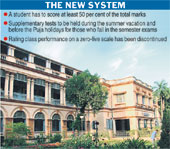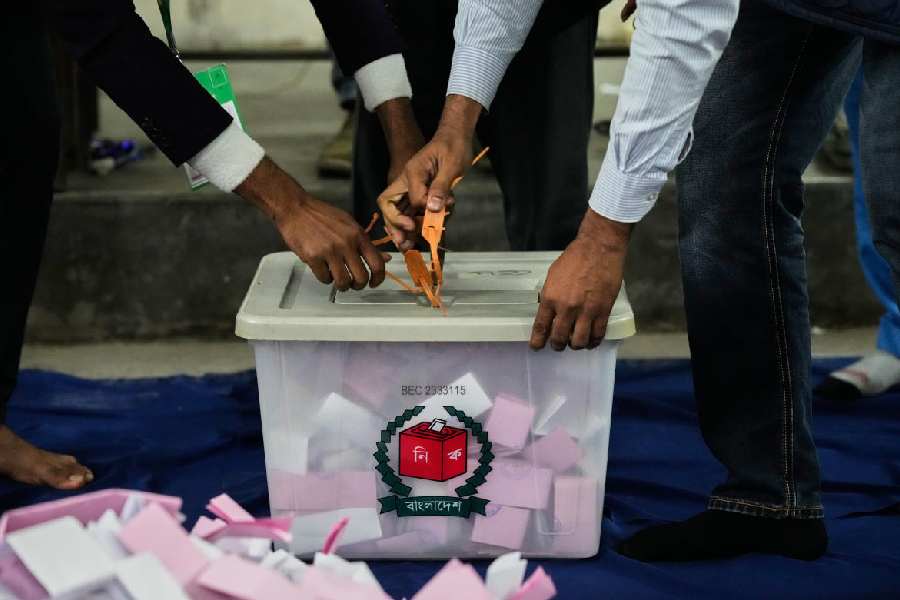 |
The long-promised revised examination system for Jadavpur University (JU)?s engineering and technology faculty is finally ready.
The rules, formulated over the past two years, make attendance and promotion regulations for students stricter. These were ratified by the executive council, the highest policy-making body of the university, on Wednesday.
The last revision of the university?s examination system was carried out in 1995. But soon after, the faculty of engineering and technology students? union (Fetsu) expressed its opposition to it.
?Another revision was necessary to restructure the system on the lines followed by institutions on a par with us,? said Partha Sarathi Biswas, a member of JU?s development and planning committee. The new system takes effect from this academic session.
Its implementation is significant, as Fetsu?s demand for a change in the system two years ago had led to a controversial 26-hour gherao of senior administrators. The gherao had resulted in a series of unpleasant incidents that came to a head on June 2005, when police swooped down late at night on a group of students on a fast-unto-death.
Under the new system, the university has made it mandatory for students to attend a minimum of 60 per cent classes (theoretical and practical separately) in each subject to be eligible to appear in a semester examination. In the system followed since 1995, only 50 per cent attendance was necessary in the entire session.
?The attendance rules needed to be changed as the University Grants Commission had directed all institutions registered with it to make it compulsory for students to attend a minimum of 75 per cent classes,? said an officer.
Barely a day after the executive council accepted the revised system, Fetsu objected to the attendance clause. ?We are opposed to the new attendance rules,? said Fetsu leader Amit Chakraborty.
In another significant change, the university has imposed certain restrictions on students getting promoted to a senior class without clearing papers they have failed in.
From now, a student will be promoted with a maximum of three failed papers. For instance, a first-year student will not be promoted if he fails in three or more papers in the first two semesters. Under the old system, a student was promoted even if he failed in six subjects.
The new system comes with another rider. A second-year student will not be promoted if he fails to clear his first year?s backlog. Similarly, a third-year student does not move up if he has a backlog from the second year. Earlier, a student who had a backlog from the first year was allowed to go up to the fourth year.
Some relaxations have been offered to students. The minimum pass mark has been reduced to 40 per cent from 50 in each subject, though the aggregate has to be 50 per cent of the total.
Besides, students failing in maximum of two papers can avail of supplementary exams to clear them.











